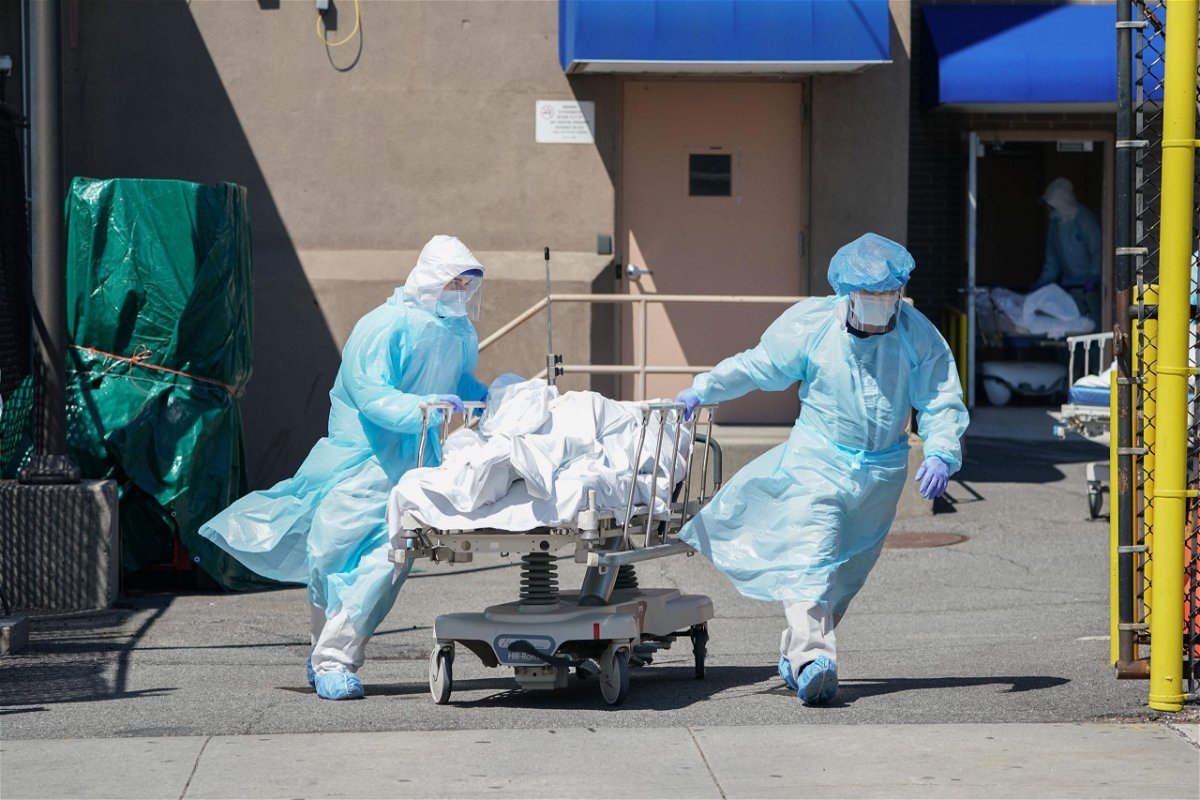Grim milestone: U.S. has now lost 1 in 1,000 Americans to Covid-19

The United States reached a grim milestone on Saturday: 1 in 1,000 Americans have died from Covid-19 since the nation’s first reported infection in late January.
Census Bureau estimates for the last week of December place the US population at around 330,750,000. On Saturday afternoon, the national death toll from Covid-19 reached 331,116, according to data from Johns Hopkins University.
Covid-19 infections in the US have reached more than 18.7 million.
The first death in the US attributed to Covid-19 occurred on February 29 in Kirkland, Washington. However, autopsy results in April determined two Californians died of Covid-19 earlier in February.
The World Health Organization declared Covid-19 a pandemic on March 11. Nearing the end of March, the nation’s 1,000th death was recorded, according to a CNN tally. Some states at the time began restrictive lockdown protocols to try and curb the spread. Meanwhile, most European nations were in the midst of a Covid-19 surge that overwhelmed hospitals and health care systems.
Within weeks, Johns Hopkins data showed at least 10,000 Americans had died of Covid-19 on April 4. Health experts warned that because of testing issues and misclassifications, the total number of deaths may be undercounted.
With an average rate of more than 1,000 deaths per day, the US tally reached 100,000 on May 23, per Johns Hopkins data, four months after the first confirmed infection on US soil.
During the summer, death rates and infections nationwide slowed from April highs, although different states experienced intermittent outbreaks, which caused local figures to spike. Four months after 100,000 Americans died by May, a total of 200,000 American deaths was tallied on September 21.
Since November, death rates have accelerated. Instead of a similar incline that took four months to reach 200,000, the next leap to 300,000 deaths took just 11 weeks. The mark was announced December 14.
Health officials are beseeching the American public for continued vigilance with coronavirus protocols, including quarantining, social distancing and wearing masks. Officials in California, where infections have grown at an alarming rate, have directly attributed a driving force behind the November surge to coronavirus fatigue.
With the arrival of Christmas and New Year’s, along with accounting for the long incubation time of the virus, hospitals and state governments are bracing for the surge to continue into January and February, one year after the start of the pandemic.
